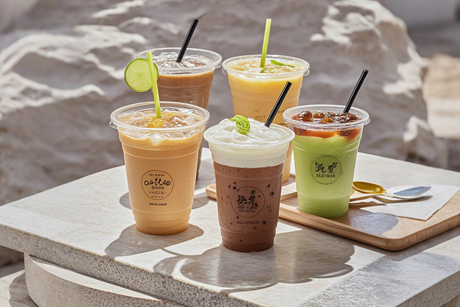
In recent years, the conversation around sustainability has directed attention towards everyday items such as takeout cups. Companies like Lwecopack have paved the way for this transition, offering a variety of options like wholesale clear plastic cups, PET cups, PP cups, and Paper cups. Each of these products has its own unique characteristics, benefits, and implications for the environment. In this blog, we will explore the evolution of takeout cups and how they are adapting to meet both market demands and environmental concerns.
Since their inception, plastic cups have been a mainstay in the food and beverage industry. They offer durability and a lightweight structure that makes them convenient for both businesses and consumers. Lwecopack’s plastic cups are designed to be sturdy and versatile, capable of handling an array of beverages from iced coffees to fruit smoothies.
However, with the increasing awareness of plastic pollution, questions about the long-term sustainability of plastic cups have emerged. The pressing need to reduce single-use plastics has led consumers and manufacturers alike to seek alternative solutions.
To address the growing environmental concerns, Lwecopack has introduced PET plastic cup series. PET (Polyethylene Terephthalate) is a type of plastic that is highly recyclable. Unlike traditional plastic cups, PET cups can be repurposed into new products, thus reducing the volume of waste that ends up in landfills.
One of the significant advantages of using PET cups is their compatibility with existing recycling systems. These cups can often be recycled multiple times without losing their structural integrity. By choosing PET cups, businesses can take a proactive step towards sustainability while still providing their customers with a reliable and functional product.
Another essential addition to Lwecopack’s product lineup is the PP cup. Made from Polypropylene, PP cups are known for their heat resistance and toughness. These qualities make them an ideal choice for a variety of hot and cold beverages. Moreover, PP is also recyclable, though it presents different challenges in the recycling process compared to PET.
Custom printed pp cups offer a balanced approach, providing both the necessary durability for practical use and a better environmental profile than traditional plastic cups. They serve as a middle-ground solution for those seeking to reduce waste without compromising on the functionality of their takeout cups.
The most noteworthy shift in the takeout cup industry is perhaps the growing popularity of paper cups. Lwecopack has been at the forefront of this change, offering high-quality paper cups that meet the modern demands for sustainability. Paper cups are biodegradable and are often produced from renewable resources, making them an environmentally-friendly alternative to plastic options.
While there are concerns about the lining used in paper cups to prevent leaks, advancements in technology are addressing these issues. Lwecopack is committed to continually improving their paper cup designs to offer even better eco-friendly solutions.
In conclusion, the evolution of takeout cups from Plastic cups to PET cups, PP cups, and now Paper cups reflects a broader shift towards sustainable practices. Brands like Lwecopack are leading this transformation, ensuring that both businesses and consumers have access to high-quality, environmentally responsible options. By making informed choices, we can all contribute to a more sustainable future.